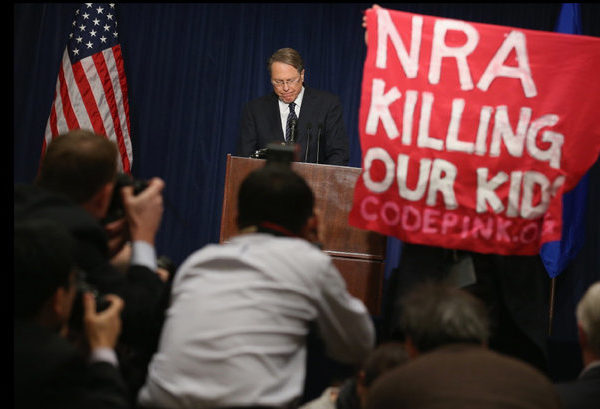
We are in the middle of a trial of strength between two populations of political actors: guns and children. And children are vastly more powerful. We don’t have to idealize them to recognize that they are far more important as political partners than are our guns. And, if neo-liberals do idealize them, so much the better. I don’t know if the kingdom is ever going to come, but I do know that one way to move toward it is to play idolatries against each other, mitigating the worst features of one by means of appeal to another, rather like alcoholism is sometimes overcome by nurturing substitute addictions.
The recent interest shown in religion and, specifically, Christianity, by otherwise non-religious thinkers has been something of a boon for theologians and the like-minded. Even when such non-Christian appropriations of theology offer a presentation of Christianity radically different from received orthodoxy, the very fact that the effort has been made is often taken as a signal of the continuing preeminence of a largely traditional Christian thought and practice. As Paul J. Griffiths has suggested, such thinkers, left without any other viable critical options, are “yearning for [the] Christian intellectual gold” that the church has always held in reserve. Because of this, their services can easily be enlisted for theology, since, as John Milbank has often suggested, it is theology alone that offers any real alternative.
Such readings of this so-called post-secular “turn to religion,” however, tend to move too quickly to theology, and this is especially the case with Agamben. Although some may wonder if Agamben’s putative appreciation of theology means that he is in fact a Christian, his various forays into theology—notably, The Time that Remains and, more recently, The Kingdom and the Glory—present, I suggest, a much different picture. Specifically, among other things Agamben’s reading of the theological tradition represents a concerted effort to profane that tradition, to render it inoperative for a new use, a use that I characterize as non-non-theological or non-non-Christian….
Under the pretense of talking about pirate theology, Peter Rollins, Kester Brewer and Barry Taylor gathered to discuss “radical theology” at Fuller this month. Rollins, in particular, analyzed the intersection between psychoanalysis and theology, arguing that Christians need to experience doubt like Jesus on the cross, asking God, the father, “My God, my God, why have you forsaken me?” After much contrived discussion, the panelists concluded that radical theology will lead to the death of Christianity as a religion in order that a new manifestation of Jesus-following might emerge. While I sympathize with Rollins and co.’s intentions, I am not certain how radical theology’s psychoanalytic approach relates to non-western contexts. Moreover, their assessment of radical theology’s (read: Emergent Church) role in church history falls victim to the same dialectical trap that Rollins critiques in his work…

In the cover story of the August 6 edition of Time magazine, Joe Klein offers a rather grim account of the U.S. national conversation about guns in the wake of recent mass shootings. He writes about the ways in which the political climate, increasingly and rather bizarrely governed by the gun lobby, has made it impossible to have any serious political dialogue about the regulation of guns and ammunition. The article is provocatively entitled, “How Guns Won.” It is clear to me from reading the piece, however, that Mr. Klein wants to stay far from actually attributing victory to guns themselves. Rather, he wants to maintain the more commonsense view that it is those political actors that value gun-owning, certainly backed by the gun industry but also fiercely devoted to libertarian ideals, that have won decisive victories. However, I think we could take Mr. Klein’s title quite literally and say that guns themselves have essentially won what Bruno Latour might call a “trial of strength” in which they had been engaged with their critics….
Atheism is all the rage today. That is, a kind of rejection- whether a traditional form of atheism, or the Christian rejection of certainty- is catching on. Some in the emerging church circles call for an “epistemological humility,” a theological hedging that tempers a rigid Evangelical orthodoxy. Still others, such as Peter Rollins, turn to more philosophical traditions, such as that of Hegel, which value a “negation.”
Rollins summarizes this kind of Christian A/theism in a number of places, and thus offers a helpful summary in his chapters in Church in the Present Tense. Providing a kind of archeology of modern categories through the thought of philosophers like Kant and Hegel, he states that there is a moment of negation when the ideas and values are denied. In turn then, he says, there comes a moment of double negation- that place when even the denial is denied.
Unfortunately, Peter and his philosophical partner Hegel are about 1700 years late. The desert monks spoke of a similar path, just without the seeming circularity of modern critiques of metaphysics.